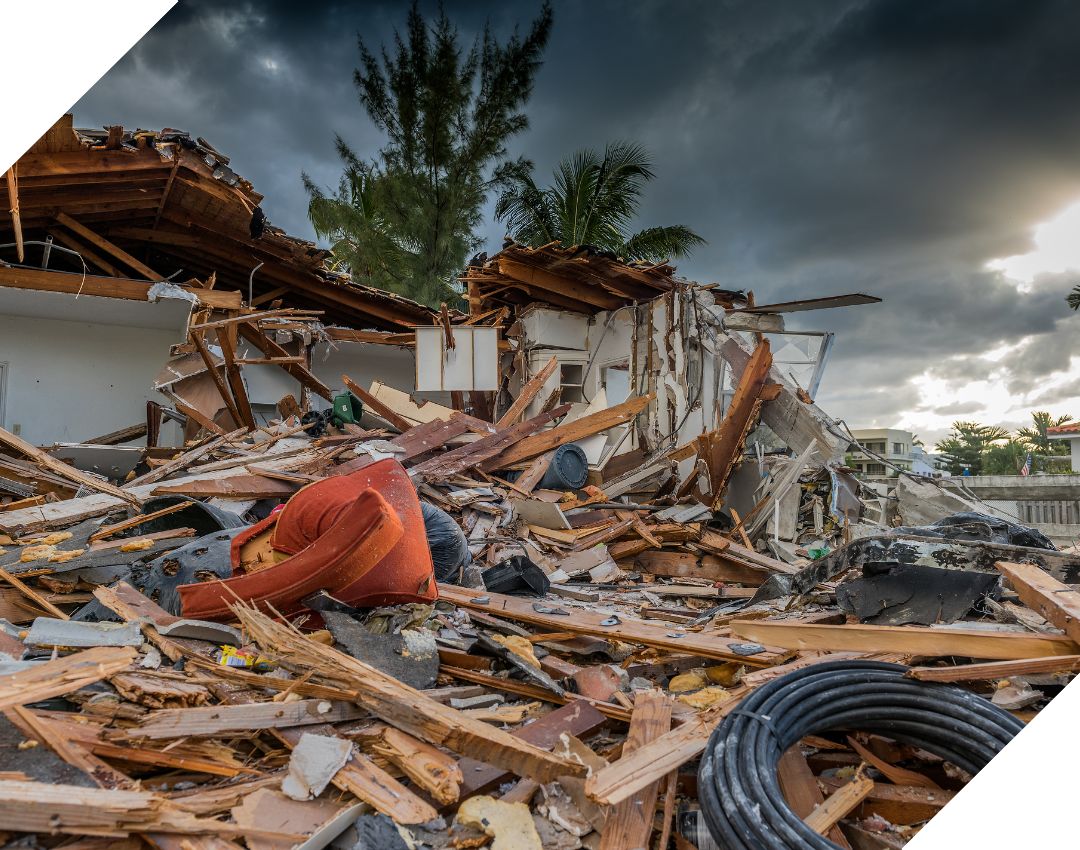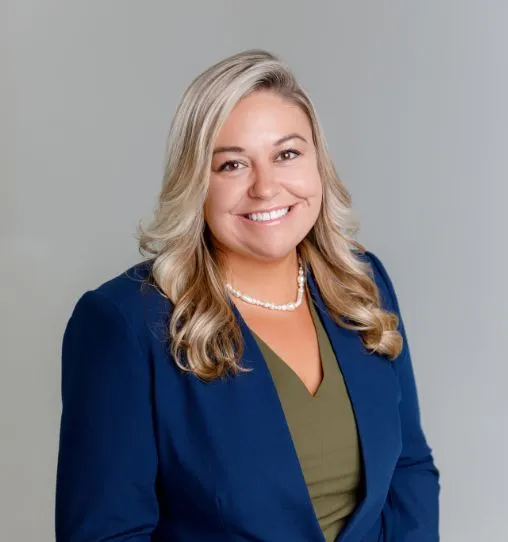Hurricane Damage in North Carolina
Understanding, Recovery, and Legal Support

After the Storm
The Reality of Hurricane Damage in North Carolina
When a hurricane approaches Eastern North Carolina, property damage is almost inevitable. From June 1st through November 30th each year, residents along the Eastern coast brace themselves for the possibility of a hurricane making landfall.
Historically, the most damaging hurricanes in North Carolina tend to occur in September and October. These storms often bring a mix of powerful winds, heavy rain, storm surges, and sometimes even tornadoes. Overlapping damage means potential overlap in coverages, so all these elements combined can create a complex situation for many property owners. They often have to file multiple insurance claims to cover different types of damage, which can be confusing and emotionally draining.
Hurricane Damage Types & Challenges
Hurricanes bring a myriad of damages that property owners must grapple with. Here’s an overview of the most common types of hurricane-related damage and the challenges they present:
Wind Damage
Hurricane-force winds can tear off roofs, break windows and cause structural damage to homes and businesses. Dealing with wind damage claims requires a comprehensive understanding of insurance policies and their coverage for wind-related losses.
Rain & Water Damage
Heavy rainfall during hurricanes can lead to flooding, water intrusion, and mold growth. Insurance policies often distinguish between wind-driven rain damage and flood damage, making it crucial to determine which policies apply to your situation.
Storm Surge
Storm surges can inundate coastal areas, causing extensive damage to properties near the shore. Understanding the intricacies of flood insurance and how it relates to storm surge is essential for a successful claim.
Mold Damage
After a hurricane, the combination of water intrusion and a lack of electricity can lead to mold growth. Insurance companies typically limit coverage for mold, and they may try to apply the mold sub-limit even when the primary peril was water damage.
Mandatory Evacuations
During hurricanes, mandatory evacuations are common for safety reasons. This can lead to property owners leaving their homes and businesses unattended. Insurance companies may have specific provisions regarding coverage during evacuations.
Property Damage Assistance with Howard Stallings Law Firm
At Howard Stallings Law Firm, we understand the difficulties property owners face when dealing with hurricane-related damage. Our team of experienced lawyers is here to support you throughout the entire claims process, and if necessary, we’ll help pursue legal action against your insurance company to ensure you receive the maximum compensation allowed under your policy.
Our law firm has been serving Coastal North Carolina, the Inner Banks, and the Outer Banks since we established our practice in Raleigh in 1983. Over the years, we’ve expanded to include offices in Morehead City and New Bern, allowing our hurricane lawyers to better serve clients throughout the state. As an established North Carolina law firm, we possess extensive knowledge of the state’s insurance laws, regulations, and court precedents. We leverage our local knowledge and experience to argue for you.
Preparing to File an Insurance Claim
Filing an insurance claim after hurricane damage can be a daunting task, especially when you’re dealing with the emotional toll of the disaster. Here are some key things to keep in mind throughout the claims process:
Document in Advance
Before a hurricane hits, it's essential to document the condition of your property, both inside and outside. Take photographs of your home, its interior, and any personal property. This documentation will serve as crucial evidence when substantiating your claim.
Review Insurance Policies
Knowing the coverage limits and details of your insurance policies before a hurricane strikes is crucial. Ensure you have copies of all relevant policies, including homeowners, flood, and business insurance.
File the Claim Quickly
In the aftermath of a hurricane, insurance companies typically handle claims on a first-come, first-served basis. Filing your claim as soon as possible is essential to securing prompt attention.
Keep Track of Your Claim Number
Keep a record of your claim number and have it readily available. This number helps insurance company representatives locate your claim quickly.
Keep Detailed Notes
Maintain a record of all communications with your insurer, including the names of individuals you speak with, contact information, dates, and the content of discussions. These notes can be invaluable if issues arise during the claims process.
Retain Receipts
If you need to make immediate repairs to mitigate further damage, keep receipts for any expenses related to temporary repairs. These expenses are generally reimbursable by your insurer. If you've been displaced from your home, document any additional living expenses.
Document Post-Storm Damage
After the storm, document any damage that may have occurred as a result of the hurricane. This includes both real property and personal property. Don't rely solely on the insurance company to document damage; take the initiative to do it yourself.
Insurance Claim Disputes & Legal Support
In the wake of a hurricane, insurance companies are inundated with property damage claims. It’s common for insurance company adjusters to undervalue the financial costs of your property damage. If you believe the insurance company’s summary is inadequate, reach out for a free consultation with our team.

Ask for Help When You Need It
Howard Stallings Law Firm is committed to being present for our community in the toughest of times. The aftermath of a disaster can be an overwhelming and isolating time. Know that you are not alone. If you and your home are affected by a hurricane, don’t hesitate to get help. As a local North Carolina law firm, we’re well-versed in the processes that many North Carolinians have to deal with. Reach out for your free consultation if you’ve suffered property damage from a hurricane.
FAQs About Hurricane Damage Claims
What if my insurance company denies my hurricane-related property damage claim?
If your claim is denied, you might be missing essential documentation or overlooking critical clauses in your insurance policy. Contact us immediately for a thorough review of your policy and claim details.
My insurance company undervalued my claim after a hurricane. What can I do?
In the event your insurance company responds to you with inadequate support, you have options. Our attorneys can help to consult with you through this process and create a clear plan of action.
When should I contact a hurricane claims attorney?
If you've experienced significant property loss from a hurricane and feel overwhelmed by the claims process, contact our team as soon as possible. An attorney can help clarify what your options are when dealing with property damage and insurance claims.
Do I really need a lawyer to deal with property loss?
It doesn't hurt to consult with a lawyer. During a free consultation with one of our hurricane lawyers, we'll work diligently to help clarify your options and develop a plan of action.
Hurricanes can be devastating, but you don’t have to face the aftermath alone. When you need legal representation for hurricane insurance claims, rely on a local law firm with a proven track record of helping property owners like you. We understand that you have endured stressful experiences with property loss, so we respond to all calls and messages within 24 hours (usually sooner). We’re here to support you through the storm.
Schedule A Free Consultation
"*" indicates required fields
Meet Our Attorneys

Robert H. Jessup
Firm Co-Owner

Rebecca Huffman Ugolick
Firm Co-Owner